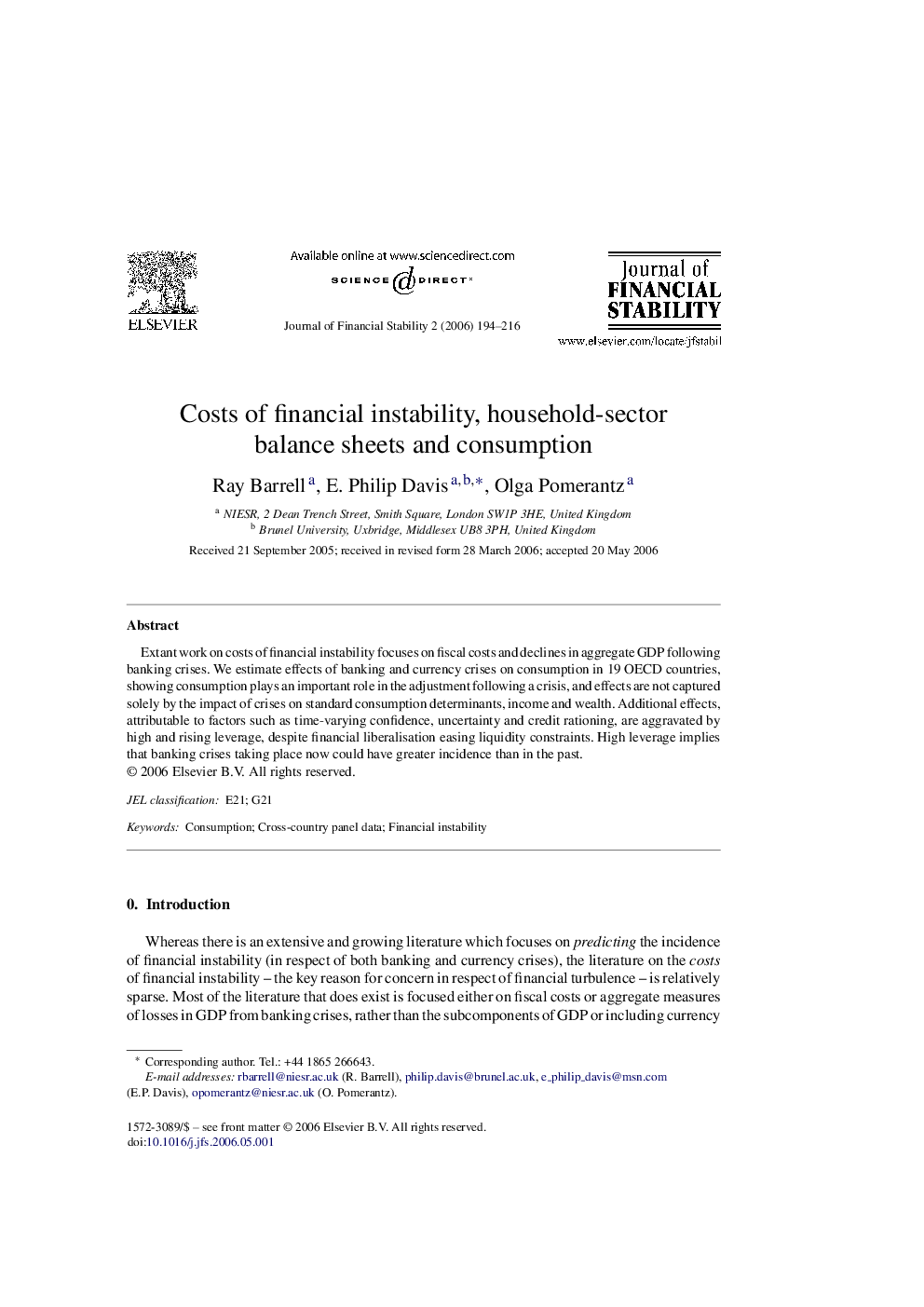| Article ID | Journal | Published Year | Pages | File Type |
|---|---|---|---|---|
| 998587 | Journal of Financial Stability | 2006 | 23 Pages |
Abstract
Extant work on costs of financial instability focuses on fiscal costs and declines in aggregate GDP following banking crises. We estimate effects of banking and currency crises on consumption in 19 OECD countries, showing consumption plays an important role in the adjustment following a crisis, and effects are not captured solely by the impact of crises on standard consumption determinants, income and wealth. Additional effects, attributable to factors such as time-varying confidence, uncertainty and credit rationing, are aggravated by high and rising leverage, despite financial liberalisation easing liquidity constraints. High leverage implies that banking crises taking place now could have greater incidence than in the past.
Keywords
Related Topics
Social Sciences and Humanities
Economics, Econometrics and Finance
Economics, Econometrics and Finance (General)
Authors
Ray Barrell, E. Philip Davis, Olga Pomerantz,
